
China Petroleum Processing & Petrochemical Technology
Scope & Guideline
Empowering researchers with essential insights in energy technology.
Introduction
Aims and Scopes
- Catalytic Processes and Technologies:
Research on catalysts used in various chemical reactions, including hydrocracking, hydrodesulfurization, and catalytic reforming, focusing on improving efficiency and product yields. - Oil and Gas Processing Techniques:
Studies aimed at optimizing processes in oil extraction, refining, and petrochemical production, including innovations in distillation, solvent extraction, and fluid catalytic cracking. - Environmental and Safety Engineering:
Research addressing environmental impacts associated with petroleum processing, including emissions reduction, waste management, and the development of safer processing techniques. - Material Science in Petrochemicals:
Exploration of materials used in petroleum technologies, including catalysts, lubricants, and coatings, emphasizing their synthesis, properties, and performance in industrial applications. - Computational Modeling and Data Analysis:
Application of computational methods and data-driven approaches to model complex petroleum processes, optimize production systems, and predict chemical behaviors. - Photocatalytic and Green Chemistry:
Investigation of photocatalytic processes and sustainable practices aimed at reducing environmental footprints in petrochemical production and waste treatment.
Trending and Emerging
- Sustainable and Green Technologies:
Increasing research on sustainable practices, including the development of eco-friendly catalysts, waste-to-energy processes, and methods for reducing carbon footprints in petrochemical operations. - Advanced Materials and Nanotechnology:
Emerging focus on the synthesis and application of nanomaterials and advanced composites in catalysis, lubricants, and oil recovery processes, which enhance performance and efficiency. - Machine Learning and Data Analytics:
Growing interest in applying machine learning and data-driven approaches to optimize refining processes, predict chemical behaviors, and improve decision-making in petroleum operations. - Photocatalysis and CO2 Utilization:
Significant increase in research on photocatalytic processes for CO2 reduction and the synthesis of valuable chemicals, highlighting a transition towards carbon-neutral technologies. - Electrochemical and Renewable Energy Systems:
Emerging themes around the integration of electrochemical processes in petroleum technology, including fuel cells and renewable energy applications, reflecting a shift towards energy diversification.
Declining or Waning
- Conventional Hydrocarbon Processing:
Research focused solely on traditional methods for hydrocarbon processing without the integration of newer technologies or sustainability aspects is becoming less prevalent as the industry shifts towards greener alternatives. - Basic Research on Asphaltenes and Heavy Oils:
Studies centered exclusively on the fundamental properties of asphaltenes and heavy oils are declining as the focus moves towards practical applications and advanced processing techniques. - Single-Use Chemical Processes:
Interest in one-off chemical processes that do not incorporate recycling or sustainability principles is waning, reflecting a broader industry trend towards circular economy practices. - Basic Thermodynamic Studies:
Research purely focused on thermodynamic properties without application to specific problems in petroleum processing is less common as the journal emphasizes studies with practical implications. - Traditional Lubricant Formulations:
Research on conventional lubricant formulations without innovation or the exploration of environmentally friendly alternatives is becoming less frequent in favor of studies that incorporate advanced materials and technologies.
Similar Journals

RUSSIAN JOURNAL OF APPLIED CHEMISTRY
Pioneering Research at the Intersection of Chemistry and EngineeringRUSSIAN JOURNAL OF APPLIED CHEMISTRY, published by PLEIADES PUBLISHING INC, serves as a pivotal platform for advancing knowledge in the fields of chemical engineering and general chemistry. With an ISSN of 1070-4272 and an E-ISSN of 1608-3296, this journal has been in continuous publication since 1995 and is set to continue until 2024. Although it operates without an open access model, researchers can access a wealth of innovative research findings, critical reviews, and insightful discussions that reflect the current trends and challenges in applied chemistry. Its rankings place it in Q3 quartiles for both Chemical Engineering and Chemistry as of 2023, indicating its emerging influence within these disciplines. The Scopus rankings further highlight its relevance, positioning it in the lower percentiles, suggesting a fertile ground for researchers aiming to elevate the field. Engaging with this journal can enrich academic and professional understanding, making it an essential resource for anyone dedicated to furthering their expertise in applied chemistry.

Upstream Oil and Gas Technology
Empowering Professionals with Cutting-edge InsightsUpstream Oil and Gas Technology, published by Elsevier, is a leading journal dedicated to advancing knowledge and innovation in the upstream oil and gas sector. With an ISSN of 2666-2604, this journal offers insightful research articles and critical reviews from 2019 to 2023, creating a valuable repository of knowledge for professionals and academics alike. Strategically positioned in the Q2 quartile of various related fields, including Chemical Engineering, Fuel Technology, and Geophysics, it holds impressive Scopus rankings, such as Rank #30 in Geophysics, demonstrating its significant impact within the scientific community. Although currently not operating under an open access model, the journal remains accessible through institutional subscriptions, ensuring that essential research is readily available to those in the industry. The editorial objectives focus on promoting high-quality research that addresses contemporary challenges in exploration, production, and sustainable practices within the upstream oil and gas domain, making it an invaluable resource for researchers, students, and industry professionals.

CHEMISTRY AND TECHNOLOGY OF FUELS AND OILS
Exploring Sustainable Pathways in Chemistry and TechnologyCHEMISTRY AND TECHNOLOGY OF FUELS AND OILS, published by SPRINGER, is a pivotal journal dedicated to advancing the understanding and technologies surrounding fuels and oils. With its ISSN 0009-3092 and E-ISSN 1573-8310, this journal has been a reliable resource in the field since its inception in 1965, providing insights into the latest research and developments up until 2024. While it currently holds a Q4 status across various quartiles, including Chemical Engineering and Fuel Technology as of 2023, the journal's commitment to disseminating valuable knowledge plays a crucial role in nurturing the academic discourse surrounding energy and chemical processes. Although it does not offer Open Access, the journal is critical for researchers, professionals, and students aiming to deepen their expertise in energy engineering, chemical engineering, and fuel technology. Its contributions underlie significant advancements in sustainable energy practices and fuel innovations, making it an essential read for those engaged in these crucial scientific domains.

Journal of Industrial and Engineering Chemistry
Elevating Knowledge in Chemical Engineering PracticesThe Journal of Industrial and Engineering Chemistry, published by Elsevier Science Inc, stands as a premier platform since its inception in 1996, dedicated to the dissemination of innovative research in the field of Chemical Engineering. Located in South Korea, this influential journal has established itself with an impressive impact factor and is categorized in the Q1 quartile for chemical engineering (miscellaneous), ranking in the top 12% of its category according to Scopus. With a focus on cutting-edge industrial applications, the journal covers a diverse range of topics including chemical processes, engineering innovations, and sustainable practices, appealing to a broad spectrum of researchers, professionals, and students. Although currently not open access, the journal offers a wealth of resources for advancing knowledge and driving forward the chemical engineering discipline. The converged years from 1996 to 2024 reflect its ongoing commitment to excellence and timeliness in publishing high-quality research.
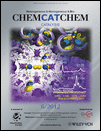
ChemCatChem
Exploring the Frontiers of Chemical Innovation.ChemCatChem is a leading international journal published by WILEY-V C H VERLAG GMBH that has been making significant contributions to the fields of catalysis, inorganic and organic chemistry, as well as physical and theoretical chemistry since its inception in 2009. With an established reputation for excellence, this journal holds commendable rankings in various categories, including Q1 in Inorganic Chemistry and Q1 in Organic Chemistry, demonstrating its pivotal role in advancing scientific knowledge and innovation. Notably, it has achieved a high Scopus ranking, securing 10th place out of 79 in Inorganic Chemistry, among others, showcasing its influence and quality. Although open access options are not available, the journal offers cutting-edge research articles, reviews, and insights that are vital for researchers, professionals, and students aiming to stay at the forefront of chemical science. With its address rooted in Weinheim, Germany, and convergence projected to continue until 2024, ChemCatChem remains a dynamic platform for disseminating vital advancements within the chemical community.
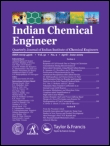
Indian Chemical Engineer
Exploring the Depths of Chemical Research.Indian Chemical Engineer, published by Taylor & Francis Ltd, stands as a reputable journal in the field of chemical engineering, encompassing a wide range of topics pertinent to both academia and industry. With an ISSN of 0019-4506 and an E-ISSN of 0975-007X, this journal has been a key resource for researchers and professionals since its inception in 1992, undergoing a significant evolution from 2009 to 2024. Currently ranked in the Q3 category of chemical engineering (miscellaneous) in 2023, it reflects a dedicated commitment to disseminating innovative research and insights within the discipline. The journal is indexed in Scopus, achieving a rank of 148 out of 273, which denotes its growing influence in the field with a 45th percentile placement. Although currently not an open-access publication, it offers valuable content that contributes extensively to the advancement of chemical engineering research and education. Researchers, professionals, and students alike are encouraged to engage with this publication to stay at the forefront of industry advancements and academic discussions.
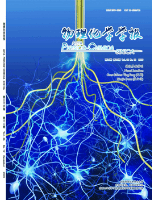
ACTA PHYSICO-CHIMICA SINICA
Pioneering insights in Physical and Theoretical Chemistry.ACTA PHYSICO-CHIMICA SINICA, published by PEKING UNIV PRESS, is a prestigious journal focused on the fields of Physical and Theoretical Chemistry, boasting an impressive impact factor as reflected in its 2023 Q1 ranking in this domain, placing it among the top 5% of journals in the subject area. With its origins dating back to 1996, the journal serves as a vital platform for the dissemination of cutting-edge research, encompassing a broad range of topics from molecular dynamics to thermodynamics and quantum chemistry. Researchers, professionals, and students are provided with valuable insights through peer-reviewed articles, making it an indispensable resource for advancing knowledge and sparking innovation in the discipline. While this journal does not offer Open Access options, its rigorous editorial standards and influential contributions continue to shape the landscape of Physical and Theoretical Chemistry globally. For submissions or further information, please refer to the editorial office at Peking University, Chemistry Building, Beijing, China.
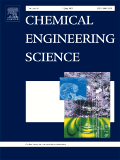
CHEMICAL ENGINEERING SCIENCE
Transforming Ideas into Solutions for a Sustainable FutureChemical Engineering Science is an esteemed journal published by Pergamon-Elsevier Science Ltd, dedicated to advancing the field of chemical engineering through high-quality research and innovation. With a storied history spanning from 1951 to 2025, this journal is recognized as a leading platform for disseminating cutting-edge studies, encompassing a diverse range of topics within chemical engineering, applied mathematics, and industrial engineering. Notably, it holds a prestigious Q1 ranking in several categories, including Chemical Engineering and Industrial and Manufacturing Engineering, indicating its significant impact and influence in these fields. The journal is not open access, yet it maintains a robust readership and is widely cited in academic circles, reflecting its vital role in shaping modern engineering practices. As a vital resource for researchers, professionals, and students alike, Chemical Engineering Science continues to bridge theoretical concepts and practical applications, fostering a deeper understanding of the complex challenges in chemical processes and manufacturing.

SPE Production & Operations
Championing Impactful Research in Energy SectorsSPE Production & Operations is a prestigious journal published by the Society of Petroleum Engineers (SPE), focusing on the critical domains of energy engineering and fuel technology. With an ISSN of 1930-1855 and an E-ISSN of 1930-1863, this journal has established itself as a vital resource in understanding the intricacies of production and operational practices within the petroleum sector. Its impressive Q2 ranking in both Energy Engineering and Power Technology, and Fuel Technology reflects its commitment to providing high-quality, impactful research. Spanning years from 2006 to 2023, SPE Production & Operations maintains an open access policy that ensures widespread dissemination of research findings, promoting knowledge sharing among industry professionals, researchers, and students alike. As the energy landscape continues to evolve, this journal serves as an essential platform for innovative research and discussion that addresses contemporary challenges and advancements in the field.
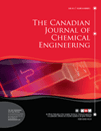
CANADIAN JOURNAL OF CHEMICAL ENGINEERING
Pioneering Research for a Sustainable FutureCanadian Journal of Chemical Engineering, published by Wiley, stands as a pivotal platform in the field of chemical engineering, addressing a myriad of topics essential for researchers, professionals, and students alike. With ISSN 0008-4034 and E-ISSN 1939-019X, this journal has been a cornerstone of chemical engineering scholarship since its inception in 1958 and continues to provide valuable insights through its rigorous peer-reviewed articles. The journal is ranked in the Q2 category of the Scopus quartile rankings, reflecting its influence and relevance within the chemical engineering community, with a notable position of #137 out of 273 in the general chemical engineering field. Although it does not offer open access options, its comprehensive coverage of contemporary research and applications solidifies its status as a vital resource for advancing knowledge and innovation in chemical engineering.